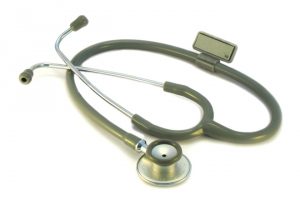In 2001, the United States Occupational Safety and Health Administration (OSHA) first rolled out major updates to Bloodborne Pathogens Standards. This was created by enabling legislation from the 2000 Needestick Safety and Prevention Act. This was actually a watershed moment for workers, as it was one of the rare times in recent history that Congress unanimously passed any legislative act, especially one involving worker safety.
 The act, as the name implies, was created to cut down on the number of accidental needle sticks among healthcare workers that could, and often would, result in unnecessary exposure to blood and bloodborne pathogens and the spread of disease to these brave health care employees working on the front lines.
The act, as the name implies, was created to cut down on the number of accidental needle sticks among healthcare workers that could, and often would, result in unnecessary exposure to blood and bloodborne pathogens and the spread of disease to these brave health care employees working on the front lines.
As discussed in a recent news release from Infections Control Today, we have seen a massive reduction in the number of accidental sharps injuries since the passage of the act. This has been due in large part to an increase in the number of safety devices required under the law. Specifically, the act required better yearly training for workers on the front line and better evaluation methods for techniques and safety devices designed to prevent sharps injuries.
As our Boston workers’ compensation attorneys have seen in various cases over the years, a sharps injury can result in debilitating injury. In some cases, were are talking about the transmission of serious diseases, and, in other cases, healthcare workers will develop serious infections that keep them out of work.
One of the most important things you can do if you suffer an accidental needle stick or other sharps injury, such as with a used scalpel or other medical instrument, is to make sure you immediately report the incident. This will do a number of things that can help you. The most important is that it will let you get access to preventative treatment. Often when used just following a needle stick, there is a window of time in which any pathogens will need to interact with the victim. Many people obviously worry about the transmission of HIV. In these cases, time during which the blood from a needle interacts with a victim and possibly spreads the infection is known as seroconversion. While the seroconversion rate for HIV from a needlestick is actually quite low, and many people will not get infected, this period of time can be used to take medications that will stop nearly any chance of an infection. While many people are hesitant to say anything, it is very important to report the incident.
This will also create a record. If you were to develop any type of infection and did not report it right away, when you ultimately file a workers’ compensation claim, the workers’ compensation insurance company would likely argue that you never reported the incident, so you likely did not suffer a work-related injury or illness. If you cannot establish it occurred on the job, it will be more difficult to obtain a full and appropriate workers’ compensation award.
If you or someone you love has been injured a Boston work accident, call for a free and confidential appointment at (617) 777-7777.
Additional Resources:
Worker injured in boat plant explosion, November 9, 2016, Associated Press
More Blog Entries:
OSHA’s New Injury Reporting Rule and Employee Drug Testing, July 14, 2016, Boston Workers’ Compensation Lawyer Blog
 Massachusetts Workers Compensation Lawyers Blog
Massachusetts Workers Compensation Lawyers Blog

